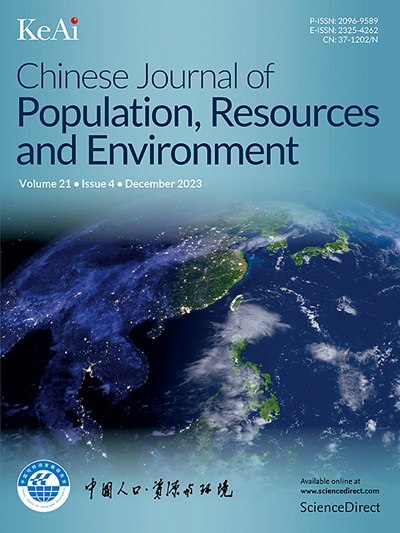Managerial myopia and urban carbon emissions: The mediating role of corporate green innovation and the moderating role of environmental multifaceted governance
IF 4.8
4区 环境科学与生态学
Q2 ENVIRONMENTAL STUDIES
Chinese Journal of Population Resources and Environment
Pub Date : 2025-06-01
DOI:10.1016/j.cjpre.2025.05.004
引用次数: 0
Abstract
This study explores the externalities caused by managerial myopia from the perspective of carbon emissions in urban areas. Using panel data from 194 Chinese cities and 1 286 listed companies from 2012 to 2021, this study empirically examines the effect of managerial myopia on urban carbon emissions. We integrate the “1+N” policy framework under China’s dual-carbon goals of peaking emssions by 2030 and achieving carbon neutrality by 2060, and propose a dual governance framework. The results show that managerial shortsightedness significantly contributes to urban carbon emissions, and this effect is particularly pronounced in cities with higher levels of carbon emissions and in first- and second-tier central cities. The mediating effect analysis indicate that managerial shortsightedness increases urban carbon emissions by inhibiting corporate green technological innovation. The moderating effect analysis shows that public media attention and government environmental regulation effectively mitigate the adverse impact of managerial myopia on urban carbon emissions. Theoretically, this study reveals the mechanism by which managerial shortsightedness increases urban carbon emissions by inhibiting green technology innovation and emphasizes the key roles of public media attention and government environmental regulation in mitigating this negative effect. This study provides important implications for policy rationale, especially for developing countries, for promoting green innovation and strengthening environmental governance to reduce carbon emissions.
管理短视与城市碳排放:企业绿色创新的中介作用和环境多元治理的调节作用
本研究从城市碳排放的角度探讨管理短视所带来的外部性。本文利用2012 - 2021年194个中国城市和1286家上市公司的面板数据,实证检验了管理近视对城市碳排放的影响。我们将“1+N”政策框架整合到中国2030年碳排放达到峰值和2060年实现碳中和的双碳目标下,提出双重治理框架。结果表明,管理短视对城市碳排放有显著影响,且这种影响在碳排放水平较高的城市和一二线中心城市尤为明显。中介效应分析表明,管理短视通过抑制企业绿色技术创新而增加城市碳排放。调节效应分析表明,公众媒体关注和政府环境规制有效缓解了管理短视对城市碳排放的不利影响。从理论上揭示了管理短视通过抑制绿色技术创新而增加城市碳排放的机制,强调了公众媒体关注和政府环境监管在缓解这一负面影响中的关键作用。本研究为促进绿色创新和加强环境治理以减少碳排放提供了重要的政策依据,特别是对发展中国家。
本文章由计算机程序翻译,如有差异,请以英文原文为准。
求助全文
约1分钟内获得全文
求助全文
来源期刊

Chinese Journal of Population Resources and Environment
ENVIRONMENTAL STUDIES-
CiteScore
4.30
自引率
1.10%
发文量
791
审稿时长
79 days
期刊介绍:
The Chinese Journal of Population, Resources and Environment (CJPRE) is a peer-reviewed international academic journal that publishes original research in the fields of economic, population, resource, and environment studies as they relate to sustainable development. The journal aims to address and evaluate theoretical frameworks, capability building initiatives, strategic goals, ethical values, empirical research, methodologies, and techniques in the field. CJPRE began publication in 1992 and is sponsored by the Chinese Society for Sustainable Development (CSSD), the Research Center for Sustainable Development of Shandong Province, the Administrative Center for China's Agenda 21 (ACCA21), and Shandong Normal University. The Chinese title of the journal was inscribed by the former Chinese leader, Mr. Deng Xiaoping. Initially focused on China's advances in sustainable development, CJPRE now also highlights global developments from both developed and developing countries.
 求助内容:
求助内容: 应助结果提醒方式:
应助结果提醒方式:


